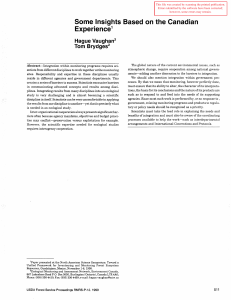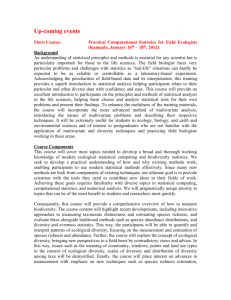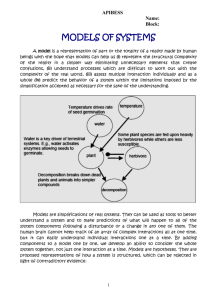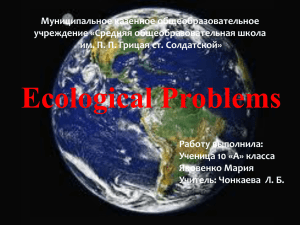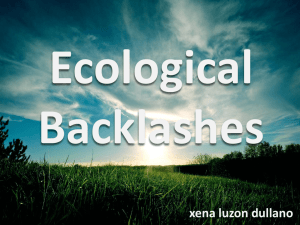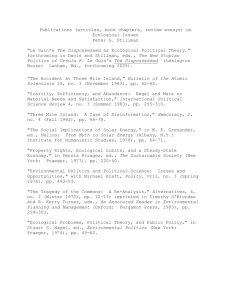Short description
advertisement
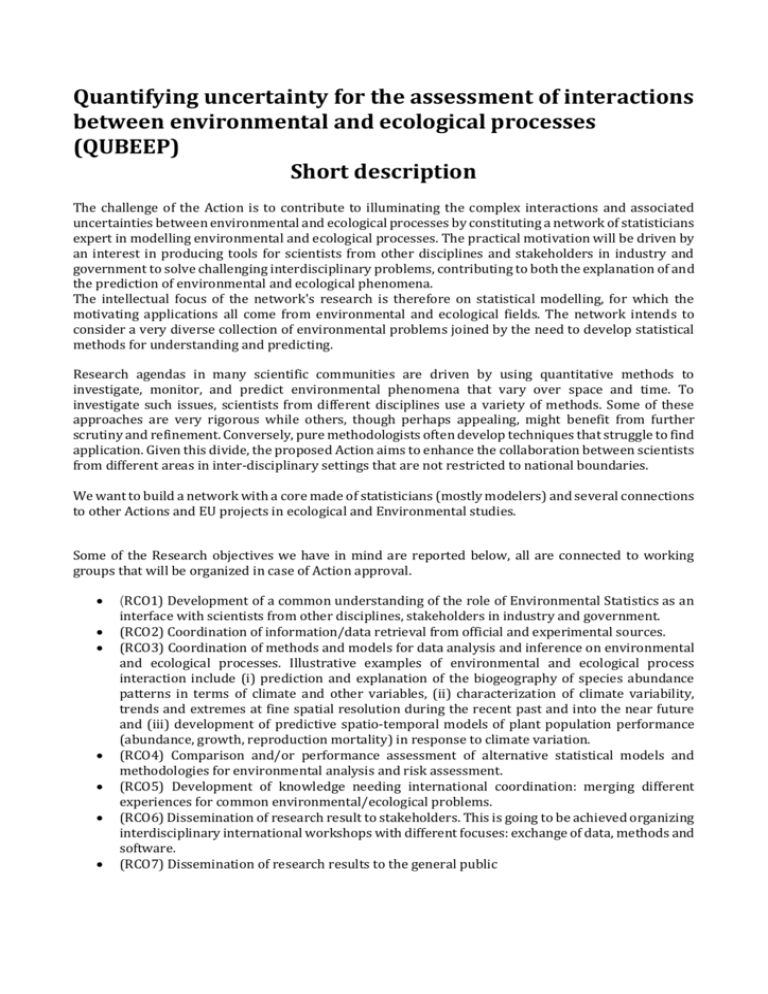
Quantifying uncertainty for the assessment of interactions between environmental and ecological processes (QUBEEP) Short description The challenge of the Action is to contribute to illuminating the complex interactions and associated uncertainties between environmental and ecological processes by constituting a network of statisticians expert in modelling environmental and ecological processes. The practical motivation will be driven by an interest in producing tools for scientists from other disciplines and stakeholders in industry and government to solve challenging interdisciplinary problems, contributing to both the explanation of and the prediction of environmental and ecological phenomena. The intellectual focus of the network's research is therefore on statistical modelling, for which the motivating applications all come from environmental and ecological fields. The network intends to consider a very diverse collection of environmental problems joined by the need to develop statistical methods for understanding and predicting. Research agendas in many scientific communities are driven by using quantitative methods to investigate, monitor, and predict environmental phenomena that vary over space and time. To investigate such issues, scientists from different disciplines use a variety of methods. Some of these approaches are very rigorous while others, though perhaps appealing, might benefit from further scrutiny and refinement. Conversely, pure methodologists often develop techniques that struggle to find application. Given this divide, the proposed Action aims to enhance the collaboration between scientists from different areas in inter-disciplinary settings that are not restricted to national boundaries. We want to build a network with a core made of statisticians (mostly modelers) and several connections to other Actions and EU projects in ecological and Environmental studies. Some of the Research objectives we have in mind are reported below, all are connected to working groups that will be organized in case of Action approval. (RCO1) Development of a common understanding of the role of Environmental Statistics as an interface with scientists from other disciplines, stakeholders in industry and government. (RCO2) Coordination of information/data retrieval from official and experimental sources. (RCO3) Coordination of methods and models for data analysis and inference on environmental and ecological processes. Illustrative examples of environmental and ecological process interaction include (i) prediction and explanation of the biogeography of species abundance patterns in terms of climate and other variables, (ii) characterization of climate variability, trends and extremes at fine spatial resolution during the recent past and into the near future and (iii) development of predictive spatio-temporal models of plant population performance (abundance, growth, reproduction mortality) in response to climate variation. (RCO4) Comparison and/or performance assessment of alternative statistical models and methodologies for environmental analysis and risk assessment. (RCO5) Development of knowledge needing international coordination: merging different experiences for common environmental/ecological problems. (RCO6) Dissemination of research result to stakeholders. This is going to be achieved organizing interdisciplinary international workshops with different focuses: exchange of data, methods and software. (RCO7) Dissemination of research results to the general public
